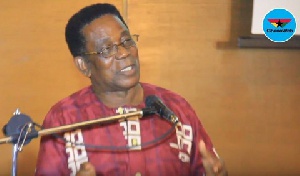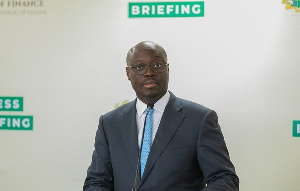Minister of State in charge of Tertiary Education, Professor Kwesi Yankah has revealed that collaborating with foreign universities in terms of exchange programs can be challenging, contrary to what many may think.
A student exchange program is one where a student from a secondary or tertiary school gets the opportunity to study abroad at any of their affiliate institutions. This program sometimes involves international travels.
Although the program has perks like giving students the opportunity to experience different cultures to broaden their knowledge base on different culture, acquire new friends and learn new languages, making it happen has its own challenges according to Prof. Yankah.
He recalled his days in the University of Ghana as the Pro-vice-chancellor and some collaborations that were difficult to sustain mentioning how Ghana is forced to succumb to inequality due to insufficient funds.
“When I was the Pro-vice-chancellor of the University of Ghana, dealing with international education at the time, there were a few challenges here and there. Whereas you had the collaboration between the two bodies, Legon and another university for example in America, and in the memorandum of understanding (MOU) clearly articulating what appears to be equal exchange, we invariably had it the other way round that more American students come in and very few Ghanaian students go in, he said.”
He explained, “it is largely because America had to bear most of the expenses and pay for the Ghanaian students going. It was common sense to them that they probably couldn’t afford as many students in Ghana going to America as you had American students coming to Ghana, so it was a kind of exchange that was really not an exchange too. It was mainly because of our plight, we could not afford to take as many students.”
He added however that, there have been a number of great partnerships between Ghanaian universities and other universities as well.
Prof. Yankah then expressed concern at the increasing rate at which students were leaving the country to study abroad with very few returning to contribute their quota to economic growth.
Currently over 3,111 Ghanaian students have enrolled in more than 630 tertiary institutions across the United States, making Ghana the third-largest sender of students from Africa, after Nigeria.
Although, the country’s Universities attracts some 20,000 students from other African countries annually, Professor Yankah maintains that the ratio is highly imbalanced, and needs addressing.
“If you look at the flow of student traffic from one direction to the other, the traffic has not been as one would have expected. We have many more of our students, colleague lecturers, etc. moving in the direction of Europe and America, more than you have theirs moving in.
For every 20 or so students that go to Europe and America, we have maybe one or two coming to Ghana or Nigeria for that matter any African country. Whereas you have a substantial number of Ghanaians going to Europe and America for their PHD, masters and others, the number of those from Europe coming to do same here is zero,” he noted.
General News of Tuesday, 17 April 2018
Source: www.ghanaweb.com













